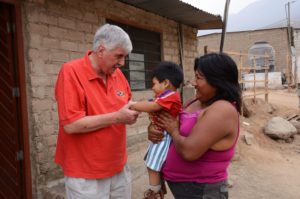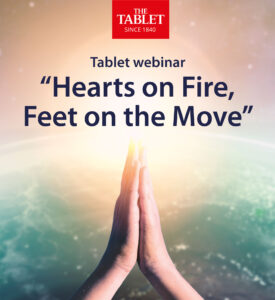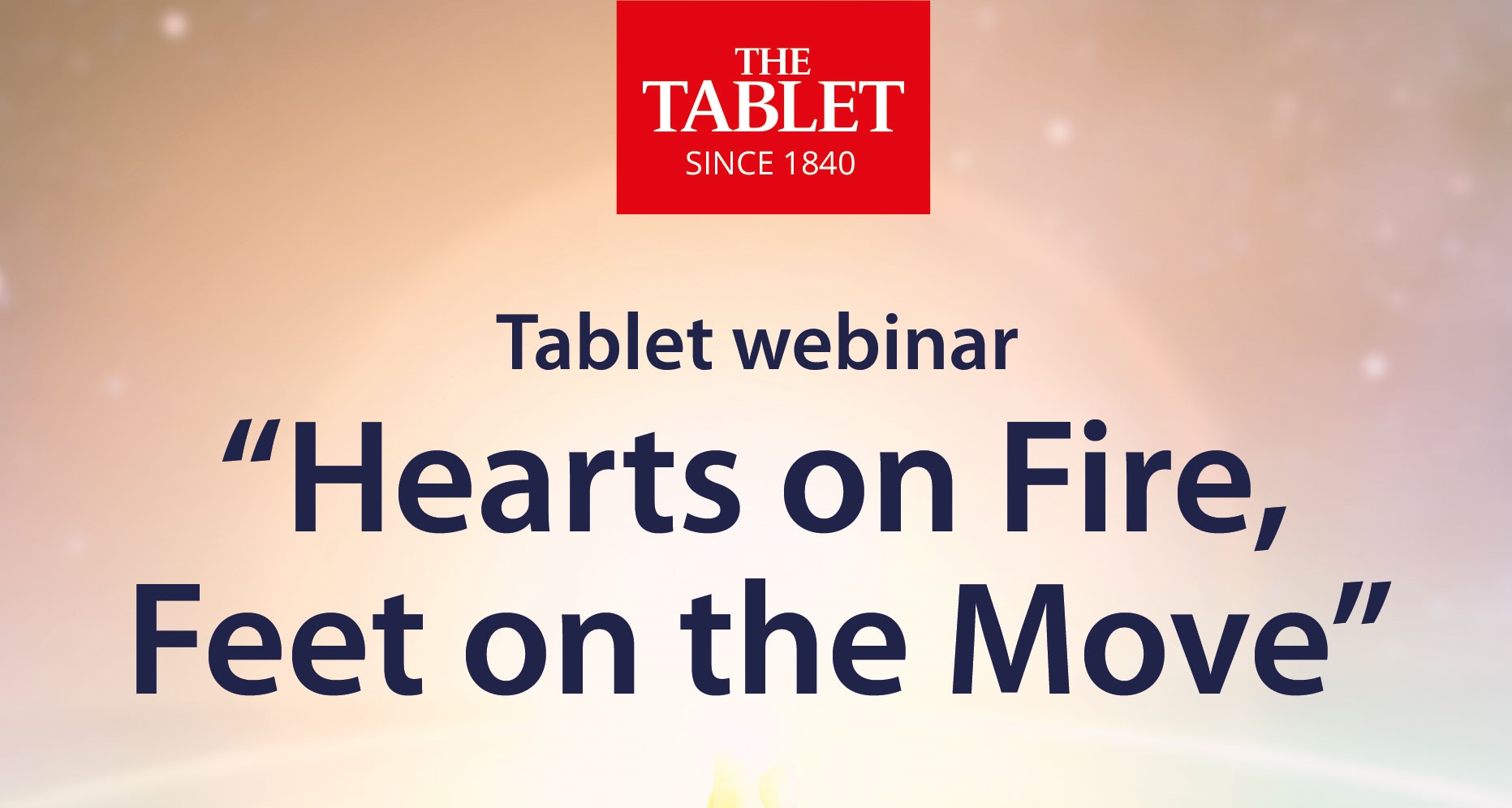Columban missionary Fr Ed O’Connell, who is celebrating the golden jubilee of his ordination, was one of four speakers who addressed a webinar on mission and missionaries hosted by the international Catholic weekly, The Tablet.
Titled, ‘Hearts on Fire, Feet on the Move’, Fr Ed, who returned recently to Britain after working in Peru, was one of four speakers.
The others were: Edwina Gateley who founded the Volunteer Missionary Movement (VMM) in 1969 and now works with women trapped in prostitution in Chicago; Paul Chitnis, Director Jesuit Mission in Britain and previously, Chief Executive of SCIAF, the international development agency of the Catholic Church in Scotland; and Mill Hill Missionary, Fr Anthony Chantry, who is National Director of Missio.
Fr Ed explained to the webinar that Columbans have been working in Peru since 1952. From the late 1950s and throughout the 1960s, people moved from the Sierra mountains, looking for work in newly established factories and for education for their children.
“They literally invaded free areas on the north, south and east side of Lima. The Columbans found themselves working in an area with a large population with very little infrastructure.”
“When I arrived in 1973, I went to a parish that had 40,000 people and two priests. So our essence was to work with the people to establish the Catholic Church in parish format, which we would then be handing over to the diocese at a later date. We have a saying: ‘Once the tarmac comes in, the missionaries should move on’.”
“In our effort to be missionaries, accompanying the people in their spiritual as well as everyday needs, we have always developed a working relationship with lay people in the parishes. And that, I think, has been our strength. We have been able to hand over 25 of the 50 parishes that were started by the Columbans to the Diocese of Carabayllo, which is north Lima.”
He explained how, “When we receive funding from our home countries, we are actually an instrument to allow a local church to develop in a mission country.”
Fr Ed told the webinar that Columban missionaries began by “reflecting on the Gospel in small groups of people until our living community grew. Then they began to look for the sacraments and they also wanted to build a chapel.”
A gradual process over fifteen years saw the building up of Christian communities that eventually became a parish.
“We realised that without the help of laypeople it was going to be an impossible job to offer sacramental preparation programmes in these growing parishes. We spent much of our time in the summer months, January, February and March in lay formation of our parishioners. We’d have courses on scripture, leadership training, sacramental theology – in essence it was to try and equip the people for the challenges that they were willing to take on.”

Fr Ed O’Connell in Peru.
“The demands of a rapidly growing parish means that you couldn’t have a priest in every chapel every Sunday. With up to 12 chapels in the parish, six would have a lay-led ceremony on one Sunday, and the priests would be there on the other Sunday.”
“We worked mostly with women and young people because the men were off finding work somewhere.” The women, he said “would be very timid when they began the scripture reflection, but little by little they grew in confidence year after year, until they became leaders in their community – even leading the Sunday liturgy.”
“These programmes served them not only in their own faith and in the church, but it also gave them courage and leadership skills which they could also take to a role in civil society and their own township organisations.”
Along with the sacramental work and leadership training programmes, Fr Ed explained how the Columbans in Peru are involved in hands-on projects such as their special needs school and ecological projects, projects with women’s organisations, empowering them.
 Asked about where evangelisation and interfaith dialogue fit into mission today, Fr Ed referred to the experience of Columban missionaries in Pakistan. “Obviously in a very difficult situation”, he said, “the thought of evangelising Muslims is not exactly a very healthy occupation”.
Asked about where evangelisation and interfaith dialogue fit into mission today, Fr Ed referred to the experience of Columban missionaries in Pakistan. “Obviously in a very difficult situation”, he said, “the thought of evangelising Muslims is not exactly a very healthy occupation”.
Columbans help brick kiln workers, road sweepers, those in bonded labour and tribal peoples in Sindh province in the south of the country.
This is done through “the dialogue of life” where “people of goodwill” including some “notable women lawyers who are Muslim and who went to school with the Presentation Sisters in Rawalpindi in Islamabad” but “stayed faithful to their religious tradition” had a “growing consciousness of the need to reach out to those in need”.
“We would work with Muslim lawyers, women as well as men, to take up the cause of those who are accused of blasphemy – very difficult, delicate situations. And also, with those who were suffering injustice especially bonded laborers.”
“That’s the way we would begin the dialogue – with a common cause of working together for humanity and the dignity of everybody. And out of that come certain levels of interchange about what you believe, what I believe, and a growing respect for each other’s traditions.”
This dialogue of life allows people to work together on a common cause for humanity, he said.
A hill walk in aid of Fr Ed O’Connell’s foundation Warmi Huasi which supports at risk children and teenagers will take place on 8th October in Co Leitrim. It is being organised by ecology campaigner Nuala McNulty. See more information about the walk here: https://www.leitrimhillwalking.org/p/charity-hillwalk-and-ramble-sunday-oct.html More information about Warmi Huasi here: https://warmihuasi.org/
To support Columban missionaries please send a donation to the Far East Office, Dalgan Park, Navan, Co Meath C15 AY2Y. Alternatively, you can donate online at www.columbans.ie/donate or call 00353 46 909 8275.

